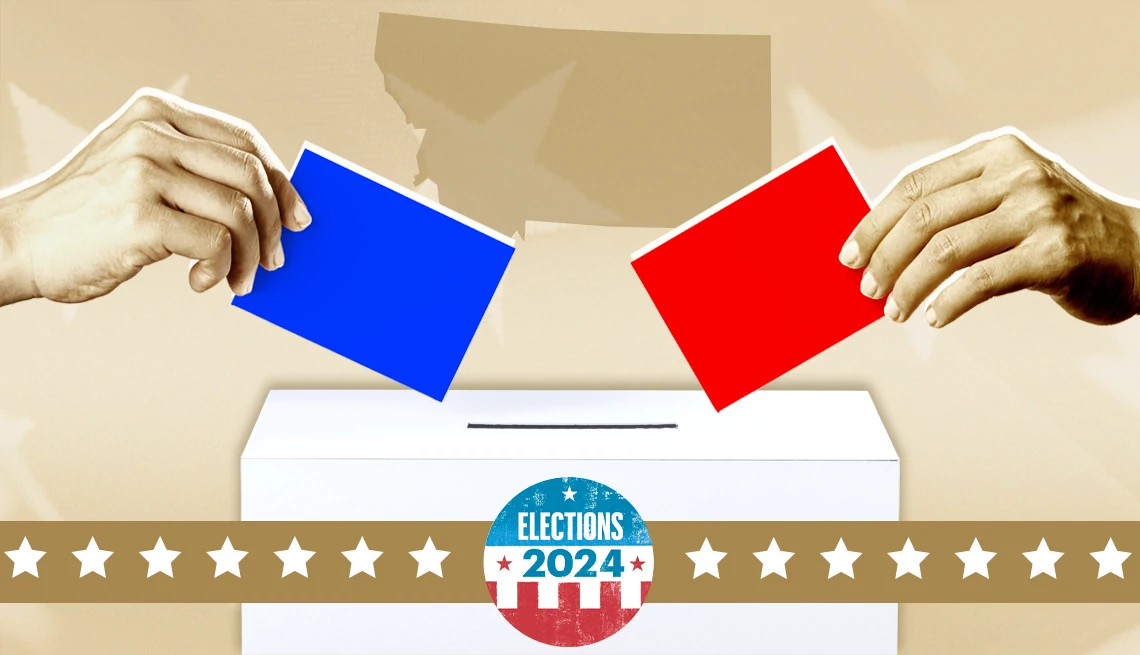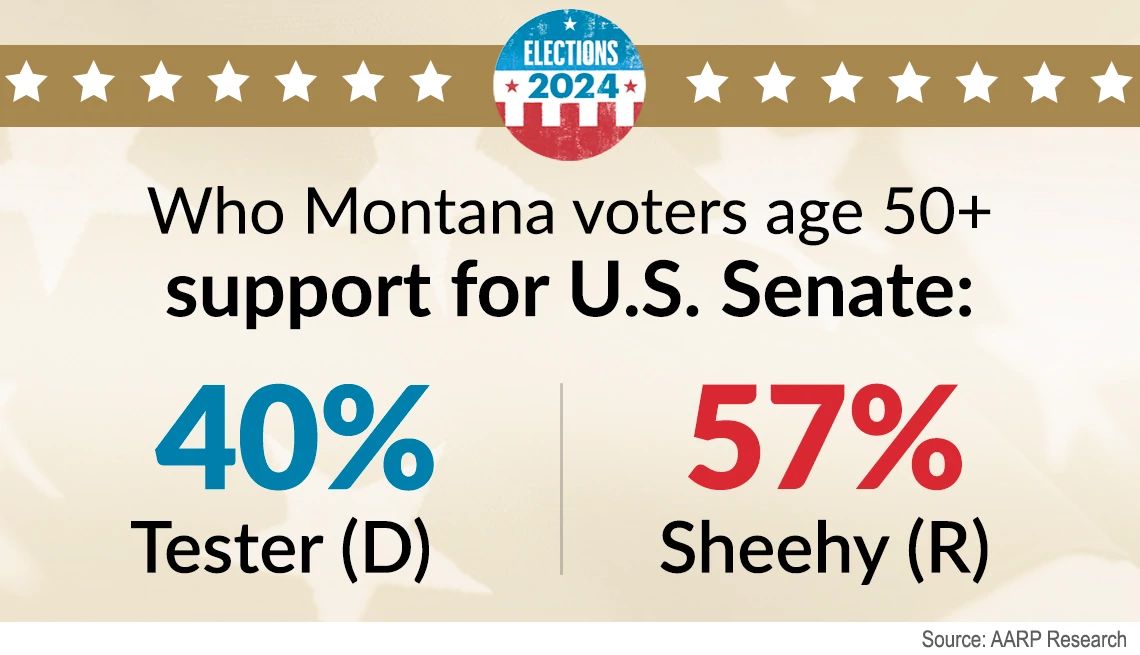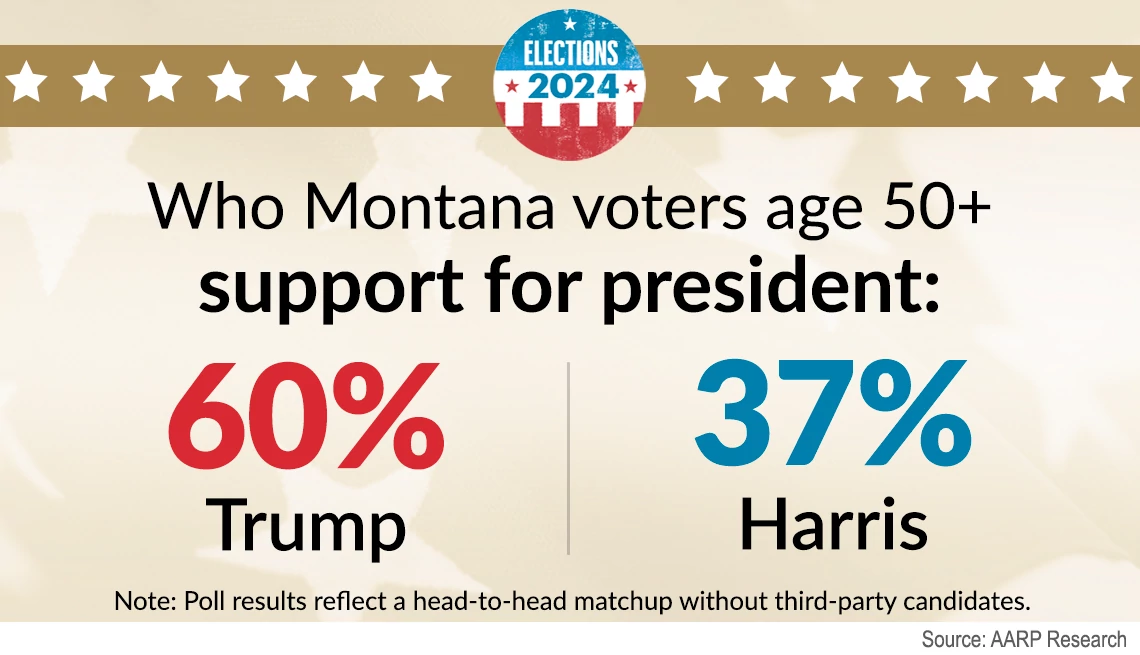AARP Hearing Center


In a critical race for U.S. Senate in Montana, Republican challenger Tim Sheehy is leading Democratic incumbent Jon Tester by 6 percentage points, according to an exclusive AARP poll released today. Fifty-one percent of likely voters prefer Sheehy in a head-to-head matchup, compared with 45 percent for Tester.
Among voters age 50-plus, Sheehy’s lead widens to 17 percentage points, the poll found.
Democrat Tester is Montana’s senior senator and a three-term incumbent first elected to the U.S. Senate in 2006. He's being challenged by Republican Sheehy, a businessman and cattle rancher. The outcome of the race could shift the overall balance of power in the U.S. Senate.
Pollsters interviewed 1,064 likely Montana voters about the U.S. Senate and presidential races and the issues motivating people to vote. The bipartisan polling team of Fabrizio Ward and David Binder Research conducted the AARP-commissioned survey from Aug. 25 through 29.
“These are pretty strong numbers for the Republican challenger,” said Bob Ward, a pollster with GOP polling firm Fabrizio Ward, of the Senate race. “Clearly, Jon Tester has the fight of his life on his hands to remain a United States senator.”


Sheehy’s lead is driven largely by Montana’s older and rural voters, who tend to be more conservative, said Seiji Carpenter, a pollster with Democratic firm David Binder Research. Tester is ahead with voters living in cities, but those make up only 19 percent of the electorate. More than half of Montana’s voters say they live in a rural area.
Sheehy, a former Navy SEAL, is also ahead with men and those without a college degree.
A significant lead in the presidential race
In the presidential race, more Montana voters said they would cast ballots for former President Donald Trump, a Republican, over Vice President Kamala Harris, a Democrat, the poll results showed.
Among voters of all ages, 56 percent said they would vote for Trump, compared with 41 percent for Harris in a head-to-head match-up. Trump held a slightly wider lead among voters age 50-plus, with 60 percent favoring Trump compared with 37 percent for Harris.


Fifty-two percent of Montana voters had a favorable opinion of Trump versus 45 percent unfavorable. For Harris, 38 percent of all voters had a favorable opinion and 58 percent had an unfavorable opinion. Among voters 50-plus, 57 percent had a favorable view of Trump, versus 40 percent unfavorable. For Harris, 37 percent of voters in the older age group viewed her favorably, compared with 60 percent unfavorably.


































































More From AARP
AARP Election Polls: How Candidates Are Faring Across the U.S.
Find exclusive data on the 2024 presidential race and issues that matter8 Things to Know About Election Disinformation and AI
Artificial intelligence spreads, amplifies falsehoodsHow to Register and Vote in the 2024 General Election
State-by-state guide to everything you need to knowRecommended for You